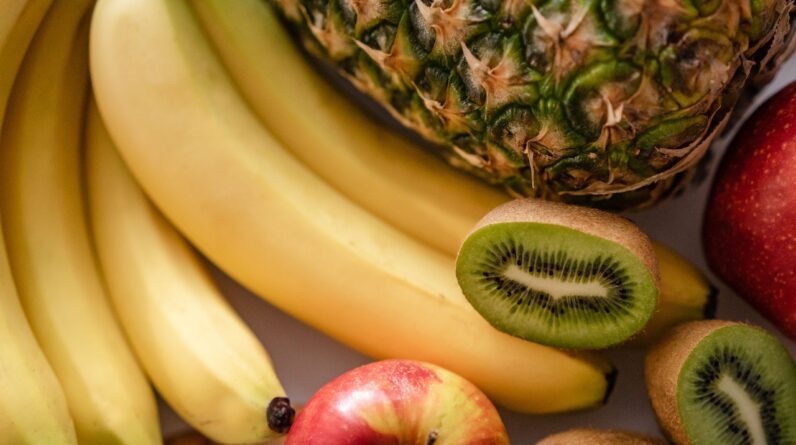
The Impact of Sugar on Weight
Sugar and Caloric Intake
Sugar, sweet though it may be, is a major source of excess calories. Remember the saying, “a moment on the lips, forever on the hips”? It’s a bit of an exaggeration, sure, but there’s a grain of truth in there. High-sugar foods and drinks can easily lead to an increase in your daily caloric intake, and these extra calories can contribute to weight gain over time.
The Connection between Sugar and Fat Storage
And it’s not just about calories. Sugar, especially in the form of fructose, can stimulate your body to store more fat. When you consume more sugar than your body needs, your liver converts the excess fructose into fat, which can then be stored in your body, leading to weight gain.
The Science Behind Sugar and Weight Loss
Sugar and Metabolism
Too much sugar can also mess with your metabolism. High sugar intake has been linked to insulin resistance, a condition that can lead to diabetes and obesity. Plus, insulin plays a key role in regulating your metabolism, so any disruption can potentially hinder your weight loss efforts.
Sugar and Appetite Control
Additionally, eating a lot of sugar can mess with your body’s hunger signals. It can cause blood sugar spikes and crashes, which can lead to feelings of hunger even when you don’t really need to eat. This can make it harder to stick to a healthy diet and calorie limit, making weight loss more challenging.
The Pros of a Sugar-Free Diet
Potential Weight Loss
Cutting out sugar can lead to weight loss, at least in the short term. By reducing your caloric intake and reducing fat storage, you may see a decrease in your weight.
Improved Overall Health
Beyond weight loss, a sugar-free diet can bring other health benefits, such as a lower risk of heart disease, type 2 diabetes, and certain types of cancer.
The Cons of a Sugar-Free Diet
Nutrient Deficiency Risk
Going completely sugar-free can be tricky. Many foods that contain sugar also provide essential nutrients. If you cut these foods out without replacing them with nutrient-dense alternatives, you could end up with nutrient deficiencies.
Potential Energy Level Drops
Your body uses sugar, in the form of glucose, for energy. Cutting out all sugar can initially lead to feelings of fatigue, lethargy, and possibly even lightheadedness. It’s important to distinguish between naturally occurring sugars in fruits and milk, for example, and added sugars. The former come along with essential nutrients and fiber that your body needs.
Achieving a Balanced Diet
Moderation, Not Elimination
So, should you cut out sugar completely to lose weight? Well, maybe not entirely. A more balanced approach would be to limit your intake of added sugars, such as those found in soft drinks, candy, and baked goods, while still enjoying naturally occurring sugars in fruits and dairy products.
Sustainable Changes for Long-Term Benefits
What’s more, making sustainable changes to your diet, such as choosing whole grains over refined grains, eating plenty of fruits and vegetables, and opting for lean proteins, can have a long-term impact on your weight and overall health. It’s all about making choices that you can stick with in the long run.
Final Wrap-Up: The Verdict on Sugar and Weight Loss
So, back to the original question: Can you lose weight by not eating sugar at all? While cutting out sugar can contribute to weight loss and other health benefits, a more balanced, sustainable approach is typically best. It’s not necessarily about eliminating sugar entirely, but about choosing your sources wisely and consuming in moderation.
FAQs
- Can I still eat fruit on a sugar-free diet?
- Yes, while fruits do contain sugar, they also provide essential nutrients and fiber. The sugar in fruit is naturally occurring, which is different from added sugars found in processed foods.
- Will I lose weight immediately after cutting out sugar?
- Weight loss varies for each individual. You might see some initial weight loss when reducing sugar, but sustainable weight loss requires ongoing healthy eating habits and regular exercise.
- Does sugar-free mean calorie-free?
- Not necessarily. Foods can be sugar-free but still contain calories from other macronutrients like protein, fat, and carbohydrates.
- What are some hidden sources of sugar I should be aware of?
- Some hidden sources of sugar include bread, sauces, salad dressings, yogurt, and granola bars. Always read food labels to check for added sugars.
- Is it dangerous to cut out sugar completely?
- If done improperly, cutting out sugar can lead to nutrient deficiencies and energy level drops. It’s best to reduce your intake of added sugars while maintaining intake of naturally occurring sugars in whole foods like fruits and dairy produ
- What are some healthy sugar alternatives?
- Natural sweeteners like stevia, erythritol, and xylitol can be used as alternatives to sugar. However, moderation is still important as these sweeteners can have their own side effects.
- How long do sugar withdrawal symptoms last?
- Symptoms can vary from person to person, but generally, they can last from a few days to a couple of weeks.
- What are some symptoms of sugar withdrawal?
- Symptoms may include cravings, fatigue, mood swings, headaches, and muscle pain.
- What can I do to manage sugar withdrawal symptoms?
- Strategies to manage these symptoms include staying hydrated, eating regularly, getting plenty of sleep, exercising regularly, and opting for whole foods when you’re craving something sweet.
- Can I have a sugar-free diet forever?
- It’s possible to maintain a diet free of added sugars, but extreme restrictions can lead to nutrient deficiencies and other health issues. It’s typically healthier to focus on a balanced diet that includes some natural sugars, such as those found in fruits and dairy products.







